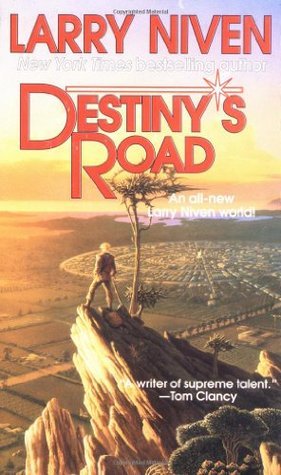What do you think?
Rate this book


448 pages, Mass Market Paperback
First published January 1, 1997
Destiny is an attractive world, with a potentially fatal drawback for its human settlers - the local biology, while not especially antagonistic to human life, won't sustain it either. Humans need to eat something called "speckles" in order to survive. Niven makes a big deal over this - perhaps too much. He uses it to revive the idea of the water empire, which he did to death twenty years ago in A WORLD OUT OF TIME/CHILDREN OF THE STATE.
The structure of the book is odd, too. At one point, and for no very good reason, there is an hiatus of twenty-seven years. Our hero, who changes his name regularly depending upon whom he wishes to avoid, dosesn't seem to have changed much over this period, so why...?
Niven has done his homework on the sociology and geography, the biochemistry and the cuisine (it's a nice touch to make his hero a cook) of his creation but it all seems a bit mechanistic. There's very little wonder in this world, which is a shame. Wonder is in plentiful supply in Niven's best work.